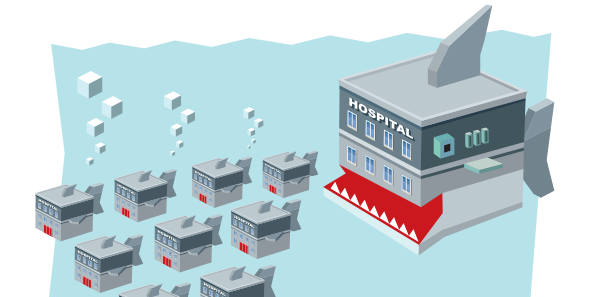
JK: There are a couple of things driving emergency medicine group consolidation. One of the most important things is physicians must have a say in terms of their practice environment, in terms of their pay, how hard they’re working, and the resources they have. What’s driving emergency medicine group consolidation is those same hospitals that are now consolidating are looking at their costs and seeing that they have some product lines that are money makers and others that are losers. They’re thinking about their groups, which offer not only emergency medicine services but hospitalist services and maybe anesthesia, and asking, “Through consolidating those services, can I improve quality and decrease cost?” That is, from my perspective, what’s driving acquisitions and consolidation. A lot of smaller groups are saying, “We see the writing on the wall. What can we do to protect our lifestyle and to protect our practice environment? We do not want to get swallowed up where we are going to lose control.” Interestingly enough, if you look at physicians nationwide, by 2025, 70 percent of physicians will be employed. That’s changing the whole paradigm for physicians who went into practice. Is it a good thing or a bad thing? I’m going to put on my ACEP hat and say that it’s good as long as we can maintain a sense where physicians have some control over their practice environment.
Explore This Issue
ACEP Now: Vol 35 – No 01 – January 2016I don’t care what the payment model is: modified fee for service, alternative payment model, or value-based purchasing. If it doesn’t lead to taking costs out of the system, it’s not sustainable. Period. —Brent Asplin, MD, MPH, FACEP
RM: Dr. Iannaccone?
RI: Well, I think I’ll answer that question by telling you briefly about the experience my group, Emergency Medical Associates, went through because we just did it less than a year ago. We had 37 years as a fiercely independent democratic group. We were painfully democratic in terms of how we did things. So why would we feel we have to make a decision like this? When I say “we,” I mean that as the CEO, I reported to a board of nine physicians, partners who worked and owned the group. It was all run by physicians. Together, we put together a strategic plan, looked at it, and said, “Holy cow, we’re not going to be able to get that done. We don’t have enough money, we don’t have the size, and we don’t have the speed to compete or to solve the problems.” The problems seemed to be coming quicker than our solutions were, so we needed to find a partner that would allow us to have some of the things that Jay just mentioned to retain some of the autonomy that we had without the ownership. I think that’s what groups are looking for when they consolidate: a pooling of resources.
Pages: 1 2 3 4 5 | Single Page





No Responses to “Emergency Medicine Leaders Discuss Drivers of Hospital Consolidation at ACEP15 Council Town Hall”